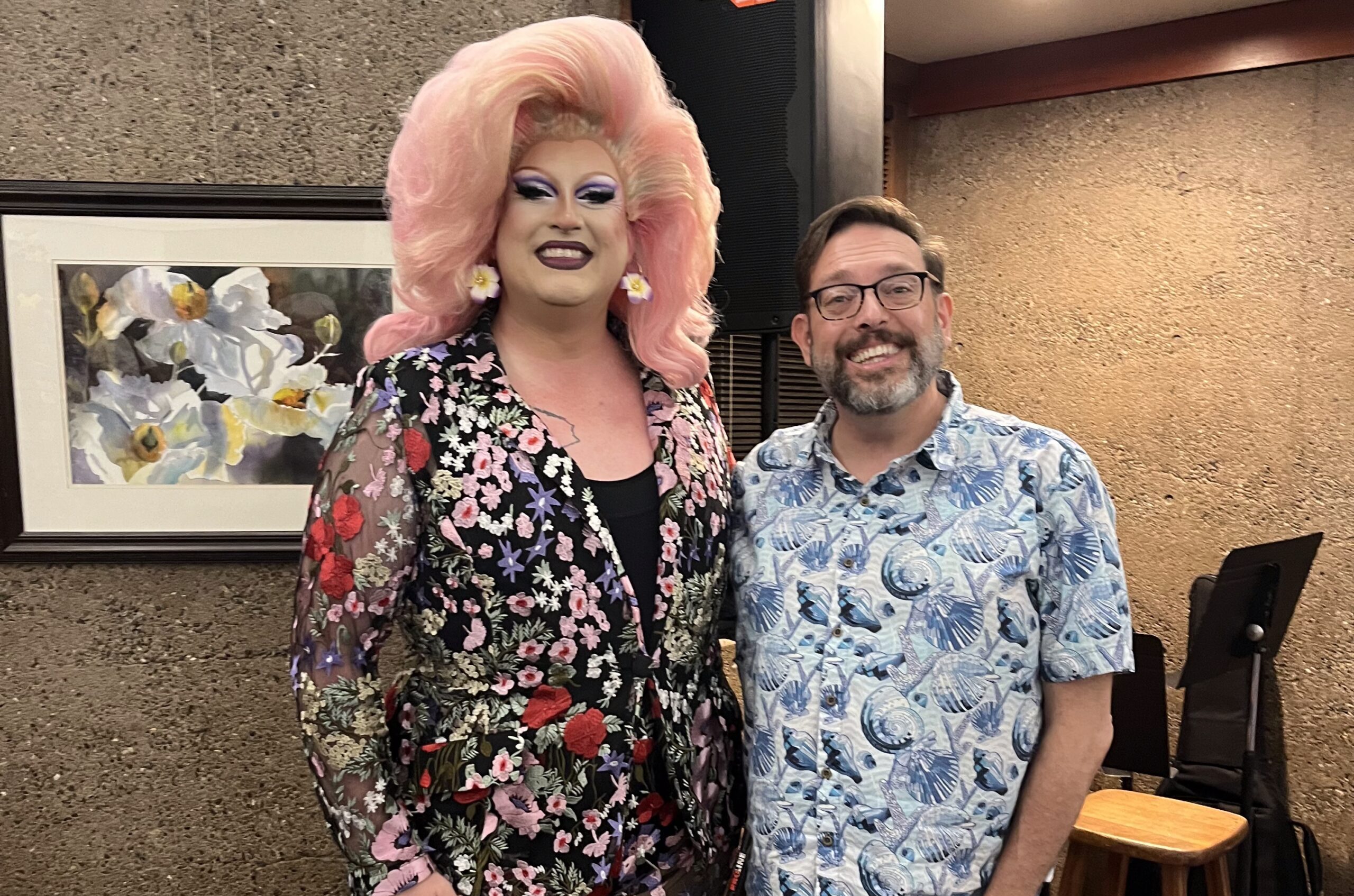
I’ve spent much of my Saturday talking with Christian fundamentalists on Twitter who are telling me I can’t be a gay Christian. This is nothing new. I’ve been having these conversations for over five years now, and I know that God has called me to this kind of ministry. But I have to admit, sometimes I get overwhelmed by the sheer numbers of people who invite me to read Romans 1. It starts to get humorous, to be honest. And it’s always thrown at me like it’s some big revelations… Oh yeah? You call yourself a “Gay Christian”? Maybe go read ROMANS 1.
Trust me. I’ve read Romans 1. Anyone who identifies as a gay Christian has read Romans 1. I even blogged about it a couple years back, and last summer I composed an epic Twitter thread responding to “Talk Nerdy To Me,” who asked: “I’d like to see how you think Romans 1:26-27, read literally, has nothing to do with you or your gay friends.” Well. I answered. But it just keeps coming up, so I thought I’d finally turn that thread into a legit blog post. I’m always interested in how anti-LGBTQ+ Christians will respond to these thoughts, so feel free to share it with them! Here we go… Originally written in Mexico City on July 18.2021.
So here we go! Now, I’m going to be talking about Romans 1:26-27 in English, since I can’t read the original language, Koine Greek. I’ll use the NIV, which is pretty standard for Evangelicals. Paul starts vs. 26 with: “Because of this, God gave them over to shameful lusts. Even their women exchanged natural sexual relations for unnatural ones.” Hold up. Wait a minute. You know as well as I do that when scripture says “therefore,” we need to ask, “What is it there for?” So if we go a little further back, say to vs. 20, we read about how “since the creation of the world God’s invisible qualities—his eternal power and divine nature—have been clearly seen, being understood from what has been made, so that people are without excuse.”
So far, so good. I’ll speak only for myself, although *many* of my gay Christian friends would say this is true for them too. But let me tell you, little Matt Nightingale was (and still is) very aware of God’s power and divine nature. I acknowledge it. Absolutely. This next part is where you lose me, frankly… Let’s see what Paul says came next… What came before the “therefore.”
Verse 21: “For although they knew God, they neither glorified him as God nor gave thanks to him, but their thinking became futile and their foolish hearts were darkened.” Huh. Now, see, I was – and still am – all about bringing glory to God. I was that little kid who was SO devout, so spiritually sensitive. I was a leader in my youth group. I was sharing my faith in Jesus with friends. I was memorizing Bible passages and leading worship and preaching in my fundamentalist church. Again, “For although they knew God, they neither glorified him as God nor gave thanks to him.” That simply doesn’t describe what is true about me. I mean, you can try to read that into my life, but it’s just… not true.
Verses 22-23 get even stranger. “Although they claimed to be wise, they became fools and exchanged the glory of the immortal God for images made to look like a mortal human being and birds and animals and reptiles.” For the life of me, I cannot remember worshipping “images made to look like a mortal human being and birds and animals and reptiles.” My friend, I was a bona fide Evangelical Christian. I was definitely not worshipping idols. No “graven images” for this WWJD kid.
Moving on. Verse 24: “Therefore God gave them over in the sinful desires of their hearts to sexual impurity for the degrading of their bodies with one another.” Okay we finally got to some sex— but again, look at that “therefore.” One follows the other. I’m just being literal. Vs 25: “They exchanged the truth about God for a lie, and worshiped and served created things rather than the Creator—who is forever praised. Amen.” I mean, not to beat a dead horse here, but since y’all keep bringing it up. Never worshipped idols. I’m a God-honoring Christian.
Have you ever heard of Lewis Smedes? He was a Reformed theologian, author, ethicist, pastor and seminary professor. He taught at Fuller Theological Seminary for 25 years before his death in 2002. Here’s his Wikipedia page, for reference.
Now, I don’t agree with everything he wrote, but I actually really appreciated what he had to say about this passage. I’ll quote it at some length, because it’s so good:
I suggest that we examine just one passage, Romans 1:18-27, the text most scholars agree is the New Testament’s most definitive judgment on homosexual behavior. Paul tells us that God had abandoned people who refused to worship and give him thanks for his gifts. These God-forsaken people – bereft of the restraining presence of God – lapsed into a swarm of deplorable behaviors with which most of us are experientially familiar.
Some of them fell into unnatural homosexual lusts with which most of us have had no personal experience. (Mind now, God did not abandon them because they had done such things. They did them because God had abandoned them.) Who were these people, the ones who were having sex with partners of their own gender? Temple prostitutes? Pederasts? People engaged in wild orgies? Nobody knows for sure. But it seems to me that we can be certain of who they were not. They were not the sorts of people that I am talking about in this essay – Christian homosexual persons who are living out their need for abiding love in monogamous and covenanted partnerships of love.
Three things about these people tell me that the apostle could not have been talking about them:
1) The people Paul has in mind had refused to acknowledge and worship God and for this reason were abandoned by God to their lustful depravity. The people I am talking about have not rejected God at all; they love God and they thank God for his grace and his gifts. How, then, could they have been abandoned to homosexuality as a punishment for refusing to acknowledge God?
2) The people Paul speaks of had turned from natural’ heterosexual practices to homosexual practices. The Christian homosexuals that I am talking about have not given up heterosexual passions for homosexual lusts. They have never been heterosexual. They have been homosexual from the moment of their earliest sexual stirrings.
3) The people Paul had in mind were constantly lusting after each other and in their actions were only following their lusts. The homosexual people I am talking about do not lust after each other any more than heterosexual people lust after each other. They seek abiding personal companionship, enduring love, shared intimacy and complete trust from each other just as heterosexual people, at their best, do. Their love for one another is likely to be just as spiritual and personal as any heterosexual love can be.
::WHEW:: Yasss, Lewis Smedes! Thank you.
Here’s his whole article. Like I said, I don’t agree with everything, but it’s a really helpful first step for some people. Do you know any divorced and remarried people who are currently in good standing at your church?
And here’s my post, in case you’d like to read those verses from Romans with my name inserted. Or the name of any other Christian gay person you may know. It’s fun!
So, since you specifically said you’d “like to see how [I] think Romans 1:26-27, read literally, has nothing to do with [me] or [my] gay friends,” there you have it! Now I’m off to bed. We’re visiting the Teotihuacan Pyramids tomorrow! And when I get home, I’ll continue helping LGBTQ+ people experience a meaningful relationship with God through Jesus, and I’ll continue helping Christians grow in their understanding and acceptance of queer people. God called me to this work, and God is blessing and growing it.
That’s the thing that helped me finally become affirming of LGBTQ+ relationships and identities, beyond all the good biblical scholarship: I saw love, joy, peace, patience, kindness, goodness, faithfulness, gentleness and self-control in queer Christians. Plain as day.
And I had to ask myself: Where does the Fruit of the Spirit come from? Oh yes: The Spirit. So can I encourage you to follow some of us on here and see what you observe? #FaithfullyLGBT is a good hashtag to follow. I also recommend the work of the Reformation Project.
As I go to sleep tonight, I’ll be praying for the Spirit to open your eyes and mind and heart to the good work of God in the lives of LGBTQ+ Christians. I hope you have a good night.





